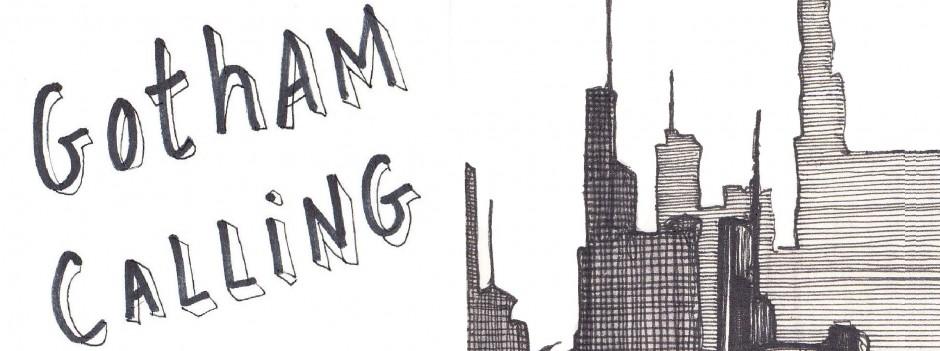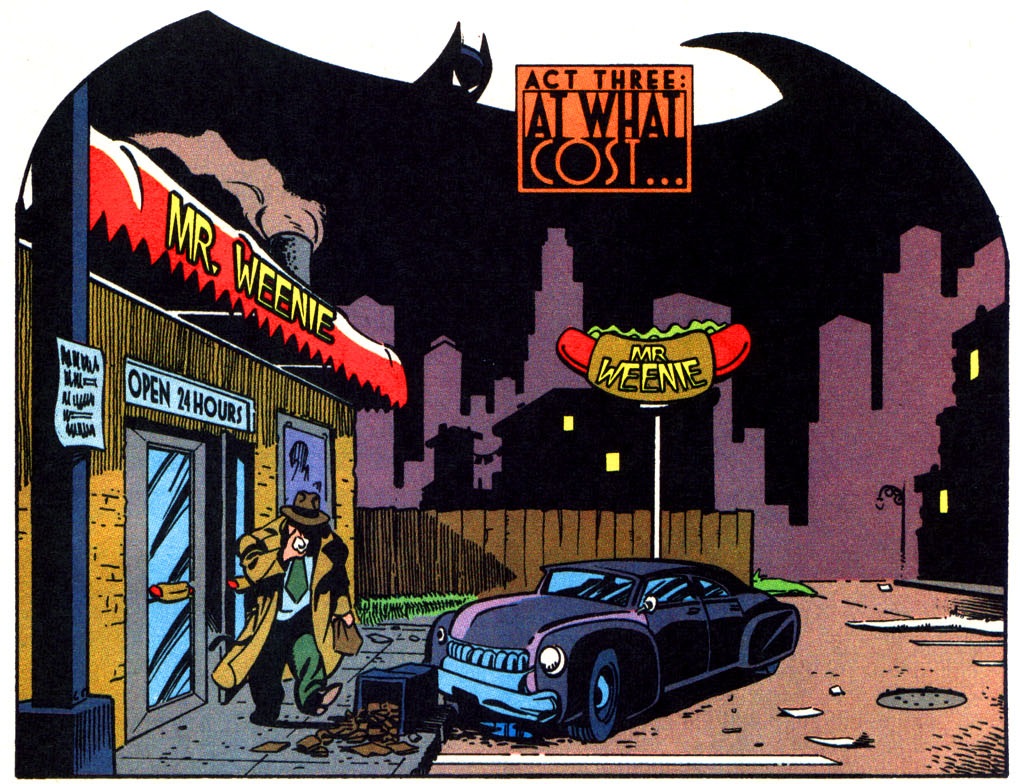
The Batman Adventures #33
Picking up from where I left off last month, let’s have a further look at the evolution of Gotham City’s gruffiest, scruffiest police detective, Harvey Bullock.
In the 1990s, Bullock gained prominence as a memorable supporting player in the very cool Batman: The Animated Series. Developed by Bruce Timm, Paul Dini, and Mitch Brian, that show streamlined the best elements accumulated over decades of Batman stories into their neatest form – and Harvey Bullock was no exception. The show’s bible nailed him in a nutshell: ‘Believing his badge is a legal license to break the rules, he resents Batman as an unauthorized meddler who is muscling in on his territory. Down deep, he’s probably irked that nobody screams “police brutality” at Batman, like they do to him.’
Niftily redesigned through Bruce Timm’s smooth style and voiced by the great character actor Robert Costanzo, the animated Harvey Bullock was damn funny. In fact, he made such a strong impression that the spin-off comic series The Batman Adventures could afford to get away with jokes based on readers’ mere awareness of Bullock’s abrasive personality:
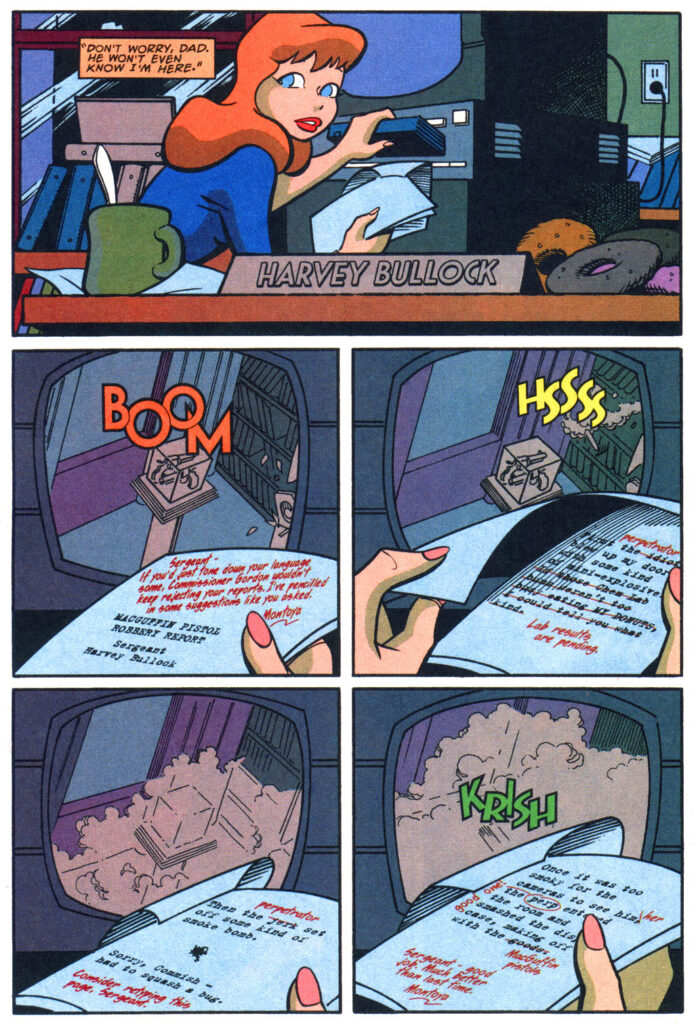
The Batman Adventures #26
Initially, this take on the character was not too far from the one Chuck Dixon began developing in Detective Comics at the same time (in what was perhaps an editorially coordinated move). Basically, Harvey Bullock came from a grown-up film noir world and sounded hilariously resentful over the fact that he had to put up with all the childish, goofy elements of the Caped Crusader’s universe (not least the colorful themed villains). Another way to look at it is that his demeanor was everything that’s unappealing about cops in real life and so perversely appealing in fiction.
You could still see traces of it by the end of the decade, during the ‘No Man’s Land’ crossover, when Bullock was one of the citizens who stayed behind in Gotham even after the city was abandoned by the US government and became a lawless danger zone:
Batman: No Man’s Land #1
In 2001, however, the official DCU version of Harvey Bullock finally went one step too far beyond the law, courtesy of writer Greg Rucka. After Commissioner James Gordon was shot by Jordan Rich, a disgruntled former officer hiding under a new identity via the witness protection programme, a loyal Bullock retaliated by tipping the Mob about Rich’s location, thus facilitating the shooter’s murder by vengeful criminals. When confronted about this, a few months later, Bullock resigned in disgrace.
The easy political reading here is that the liberal Rucka provided actual consequences to the sort of bad cop attitude the conservative Dixon cynically accepted (or at least played for laughs). Yet I think this development was not only consistent with Bullock’s characterization, but it even made him more interesting at various levels.
For one thing, Rucka wrote it in a way that gave Bullock a peculiar kind of dignity, namely by leaning into his respect and affection both for Gordon and for his partner, Renee Montoya. Before learning what he was up to, we saw Bullock prevent Montoya from pursing her own deadly revenge quest against Jordan Rich, thus protecting her without admitting as much:
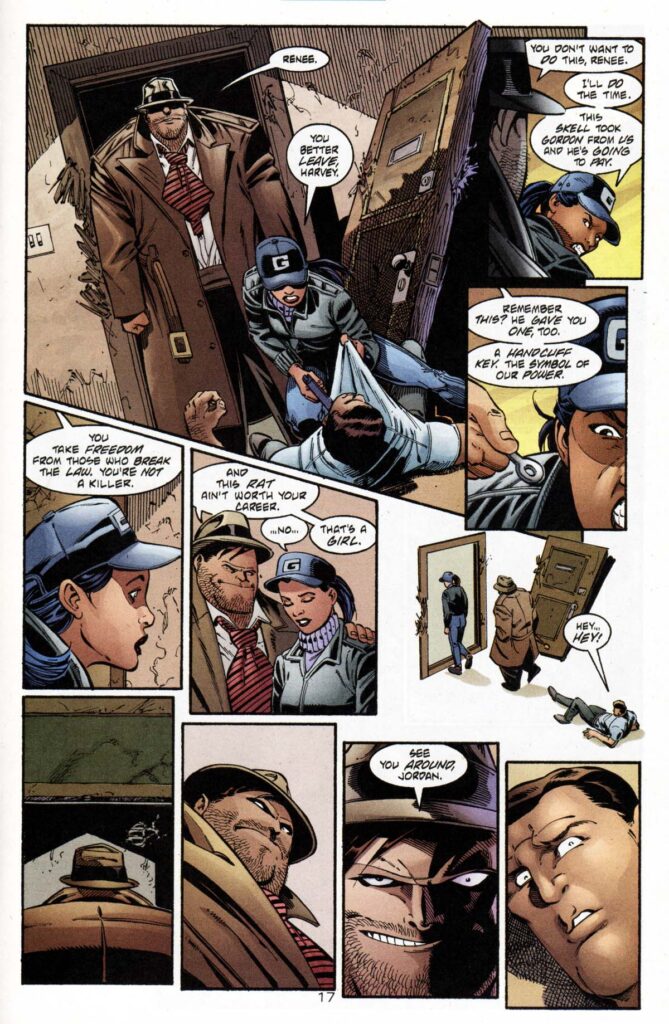
Gotham Knights #13
Issues later, when the payoff finally came, Greg Rucka let Harvey Bullock walk out, of his own volition, rather than send him to prison. What’s more, Bullock’s goodbye gesture to Renee Montoya was not only a nice callback to the scene above, but also a begrudging admission that he realized he had crossed the ultimate line and was unworthy of the trust Commissioner Gordon had placed in him…
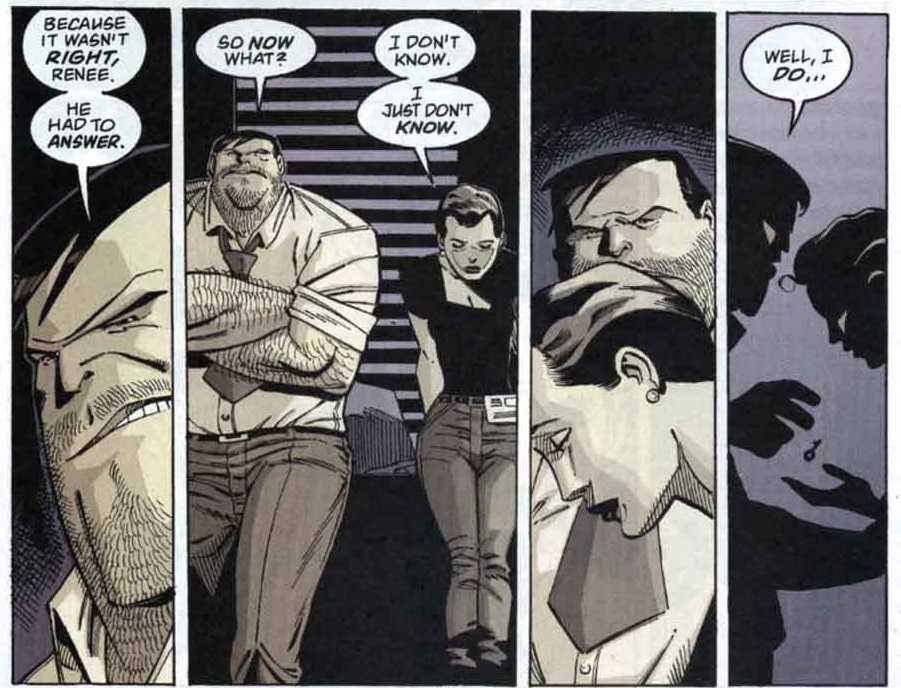
Detective Comics #762
Although we now saw much, much less of Harvey Bullock on the page, which was a shame, I love the fact that his legacy continued to loom over Batman comics. Even in his absence, Bullock continued to be a cast member in spirit.
When Greg Rucka and Ed Brubaker launched the awesome police procedural Gotham Central, in 2003, they reminded readers that the rest of the Major Crimes Unit was still marked by the memory of what had happened to Bullock.
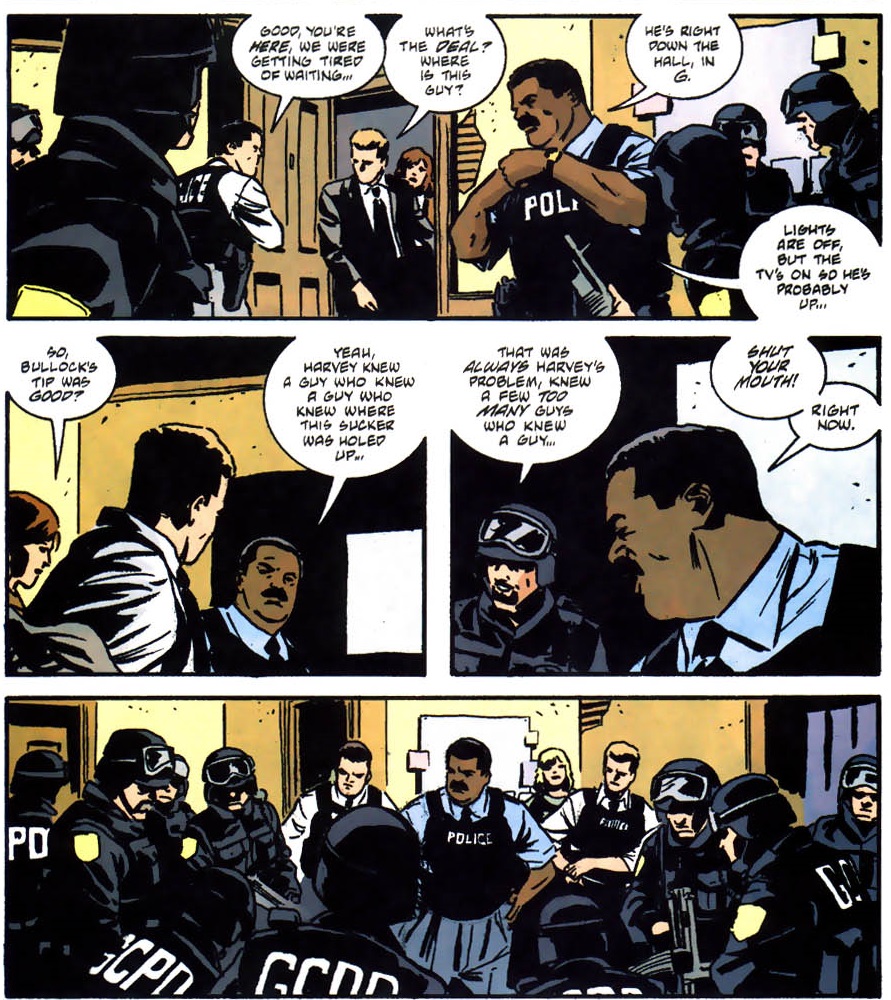
Gotham Central #4
The last ‘silent’ panel speaks volumes, right?
This issue was actually written by Ed Brubaker, who did the best callbacks to Harvey Bullock in his scripts for the series. Perhaps Greg Rucka felt he had already completed Bullock’s arc and didn’t have much to add. Or maybe it was just Brubaker’s own passion for fucked up characters fallen from grace, coupled with his knack for casual banter among pros…
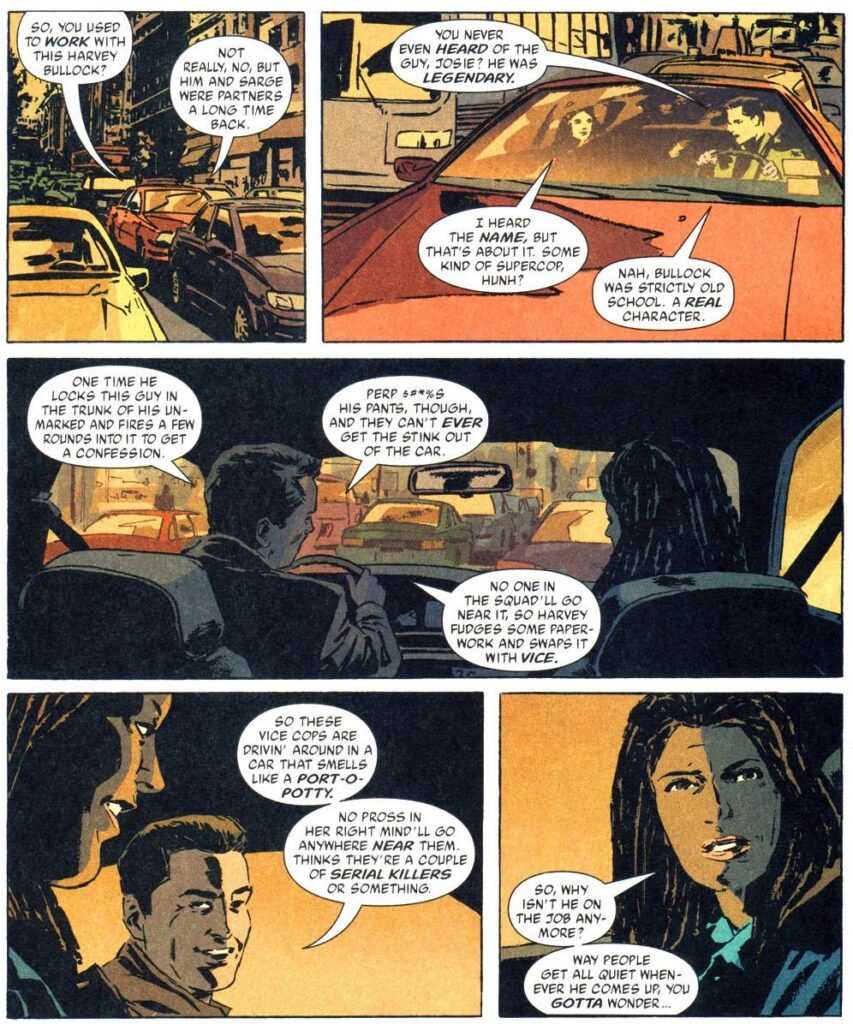
Gotham Central #20
In any case, in 2004, Ed Brubaker finally brought Harvey Bullock back, in body as well as in spirit, for ‘Unresolved,’ an amazing Gotham Central arc in which a couple of cops pick up an old Bullock case and go to him for help.
I’m on the record as considering Brubaker’s work on Batman comics (hell, his comics work in general) as hit-and-miss, but this story is definitely a hit. Everything about ‘Unresolved’ is prime Brubaker doing what he does best, with smart, affecting plot, dialogue, and characterization all around. And when Bullock showed up again after all the buildup, it certainly made the wait worthwhile.
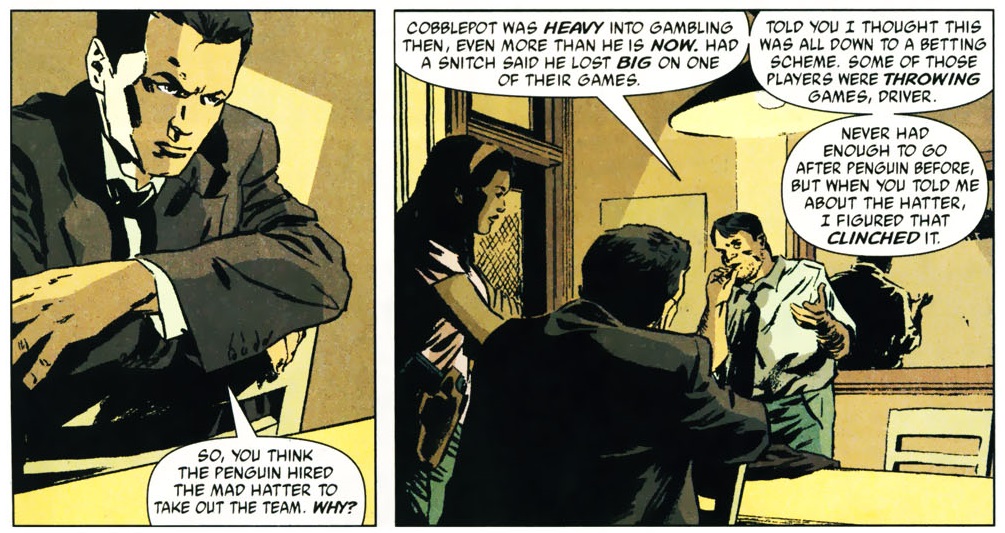
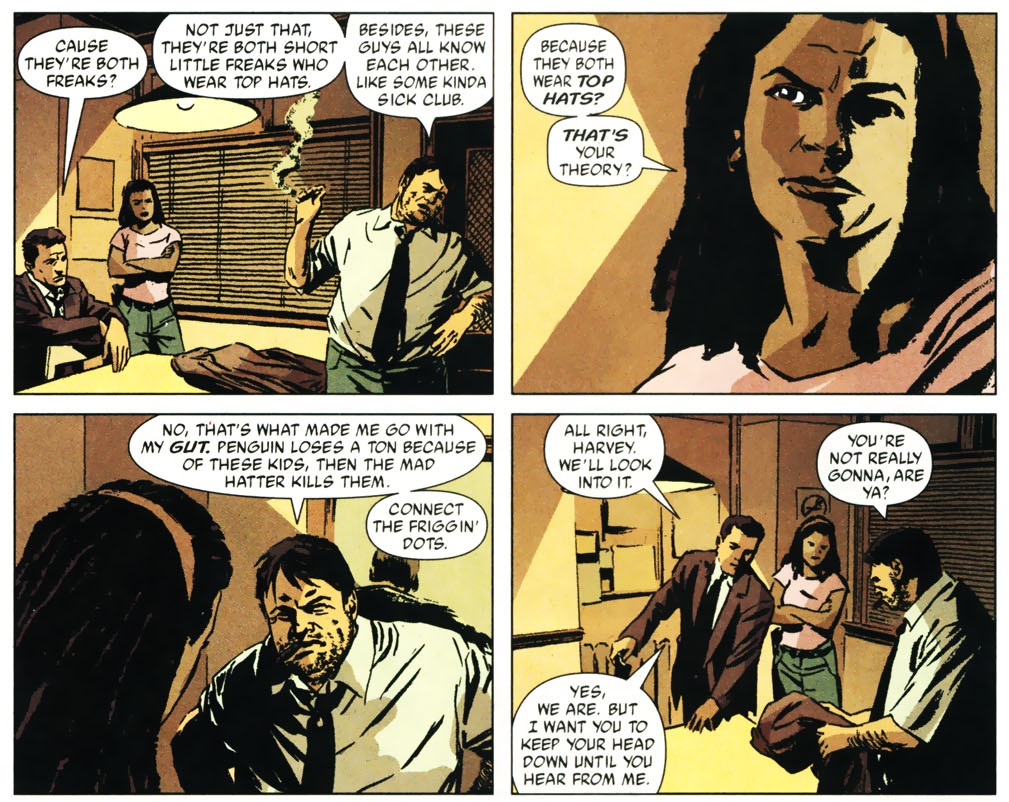
Gotham Central #21
Honestly, I would’ve been fine with the odd Harvey Bullock cameo like this, helping out in an investigation every once in a while, popping up as a cop in flashbacks and as an ex-cop in the present, perhaps even teaming up with private eyes like Slam Bradley or Joe Potato.
Yet Ed Brubaker provided something even better: a perfectly devastating ending to Bullock’s character arc. Decades of fiction have programmed us to trust a cop’s gut instinct, but – true to Gotham Central’s gritty revisionist tone – ‘Unresolved’ proves Bullock wrong… It turns out he really is just a flawed, decrepit, old-school crooked cop whose judgment isn’t always on the money.
Rather than glorifying the trope of the tough policeman who places personal prejudices above the rule of law, the comic has Bullock pull off vigilante justice against the wrong guy (the Penguin) and in the end things get pretty dark:
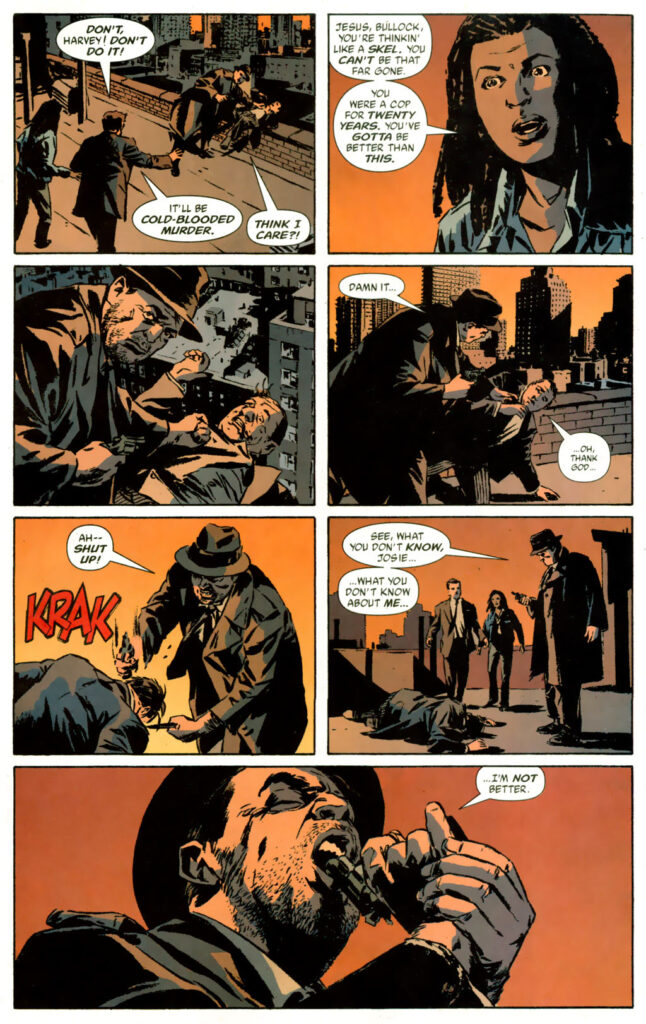
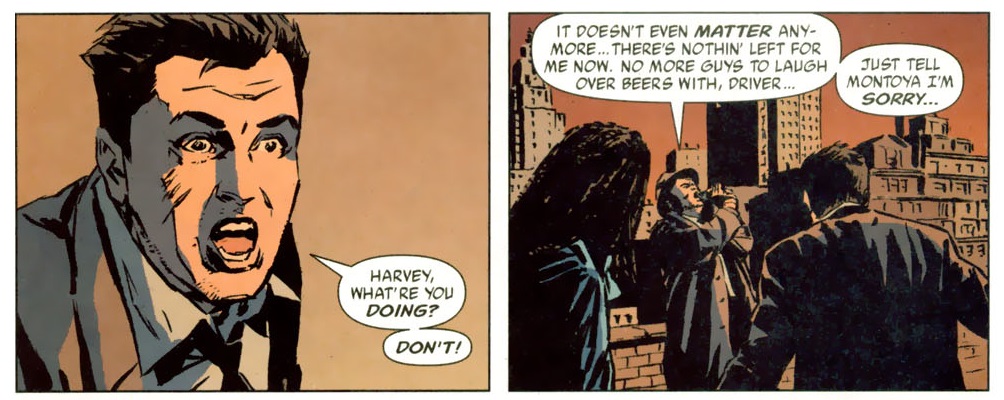
Gotham Central #22
‘Unresolved’ should’ve been one hell of a send-off for Harvey Bullock. But, you know, comics…
Sure enough, it took only a couple of years for the franchise to revert into a mostly familiar status quo. In 2006’s ‘One Year Later’ soft reboot, we find out that – unsatisfyingly off-page – sometime in the previous months ‘Gordon sensed corruption in Gotham at the highest level’ and sent Bullock to investigate, uncovering and exposing so much dirt that, as a repayment, he was allowed back in the force, on the condition that he wouldn’t make a single mistake. I suppose that could be a cool story to tell, but DC never got around to it, so all we were left with was a sense of regression.
The new Bullock wasn’t uninteresting: he was a weary, tragic figure making up for his mistakes and trying to keep straight, despite his cynicism. Nevertheless, his characterization was fairly inconsistent because the thing that had defined Bullock for so long and gotten him thrown out of the police force was that he cut corners because he wanted justice (he was the dark version of Batman and envied him), whereas now he was treated as simply having been bent himself:
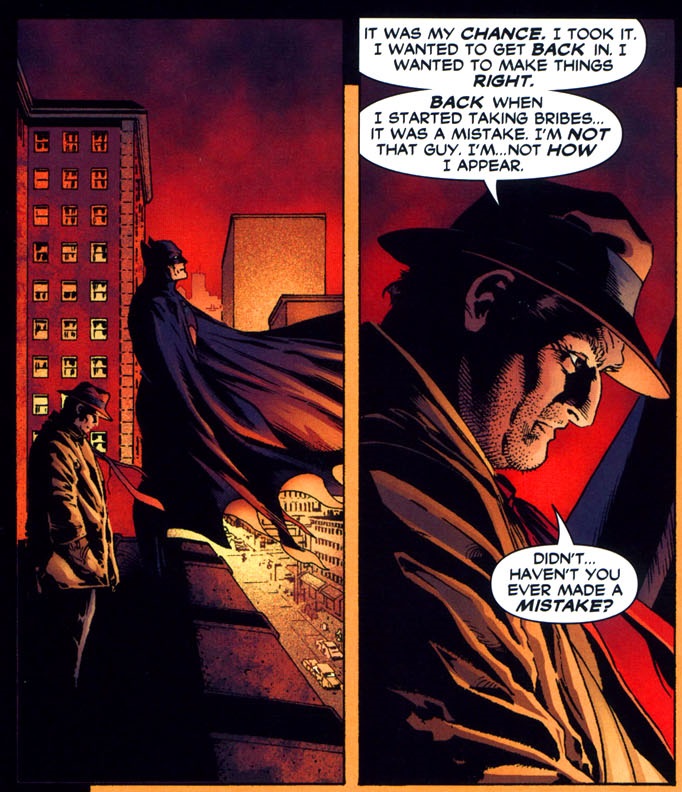
Batman #652
The whole thing felt off for me, so in my headcanon Harvey Bullock became a different version of the character, perhaps having migrated from some alternate timeline (like the Batman: Earth One series) in one of the DCU’s many multiversal events. For me, post-Crisis Bullock was last seen in Gotham Central #22, pissed that he never got as much respect as that guy in a costume with pointy ears.
